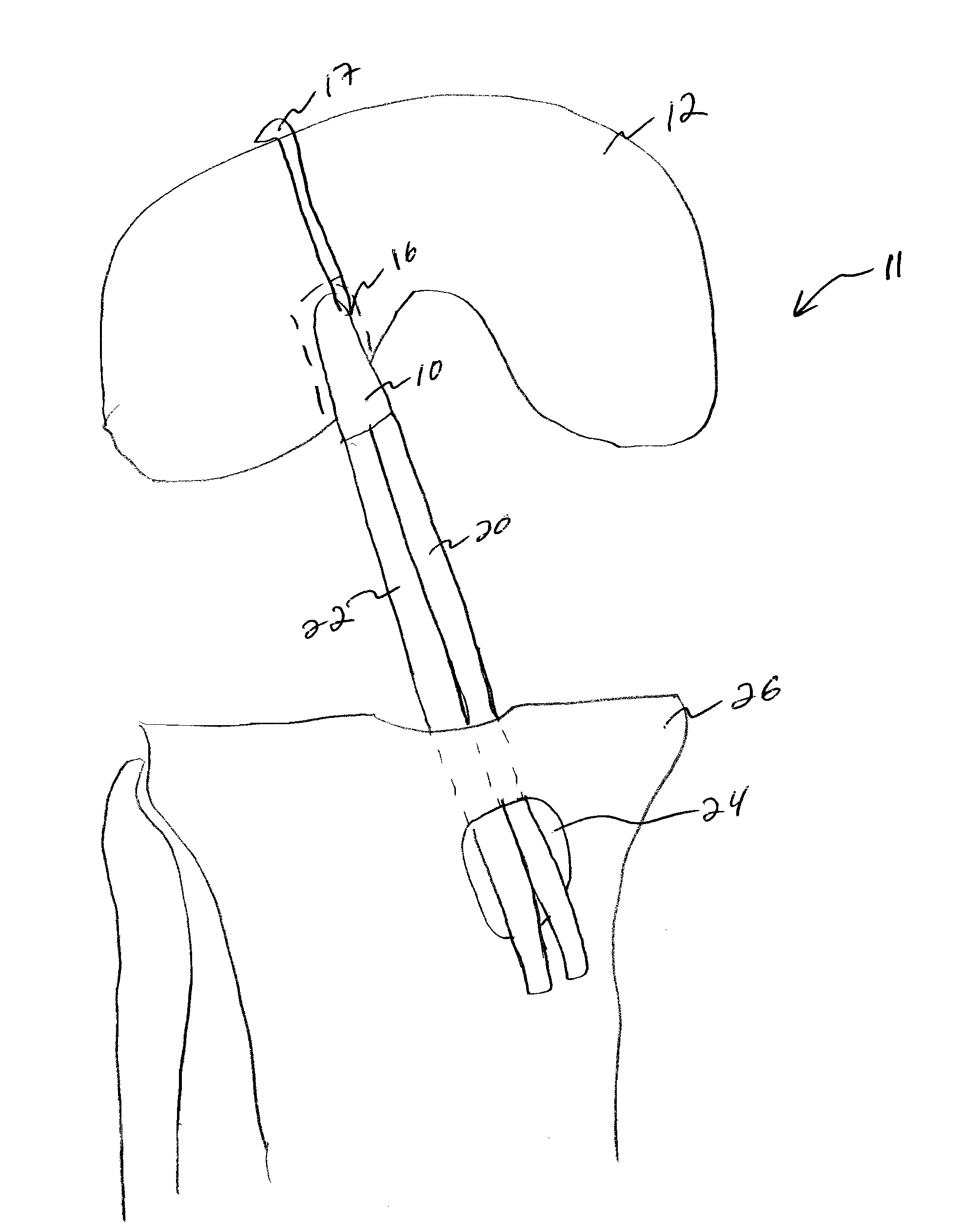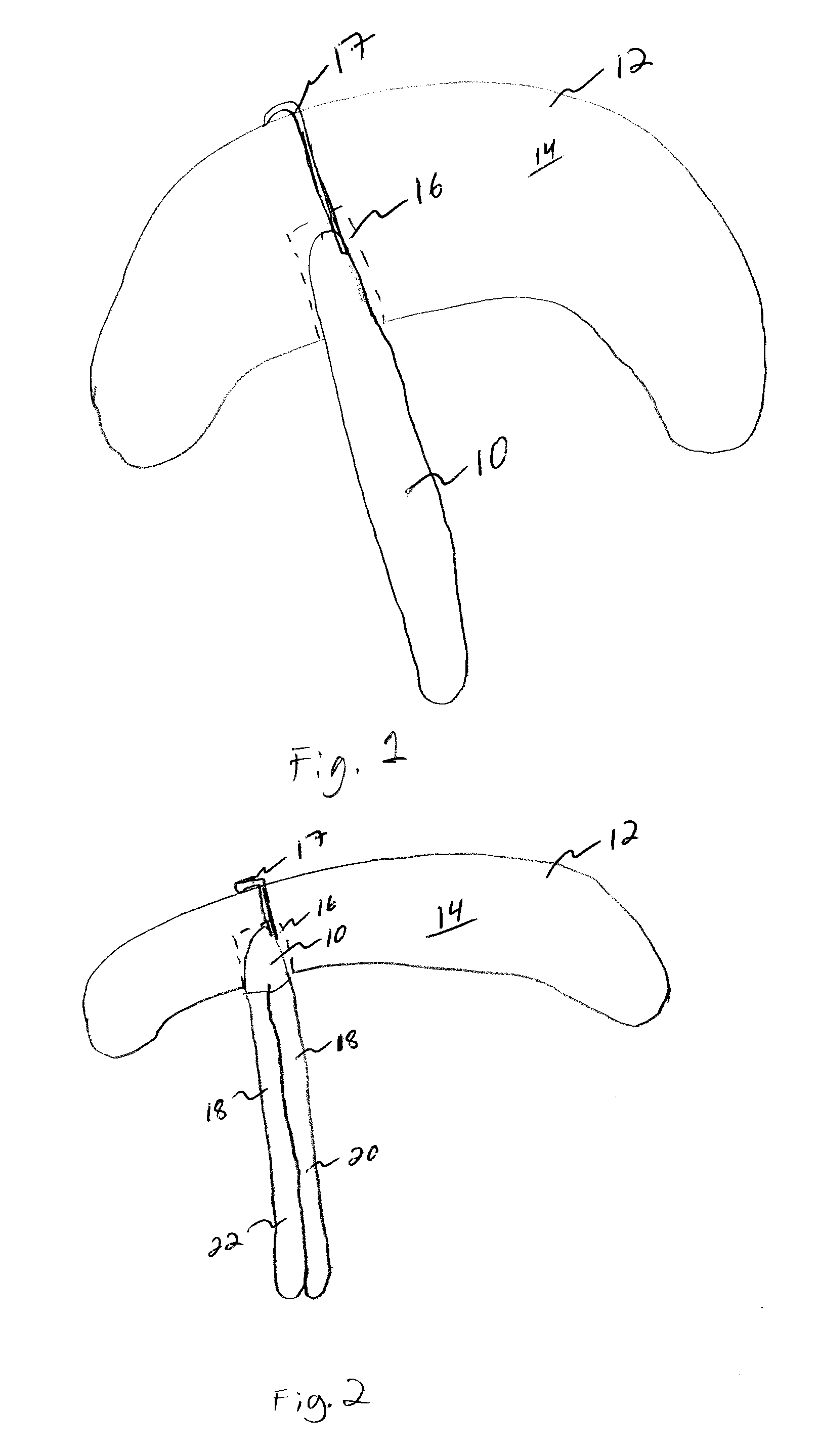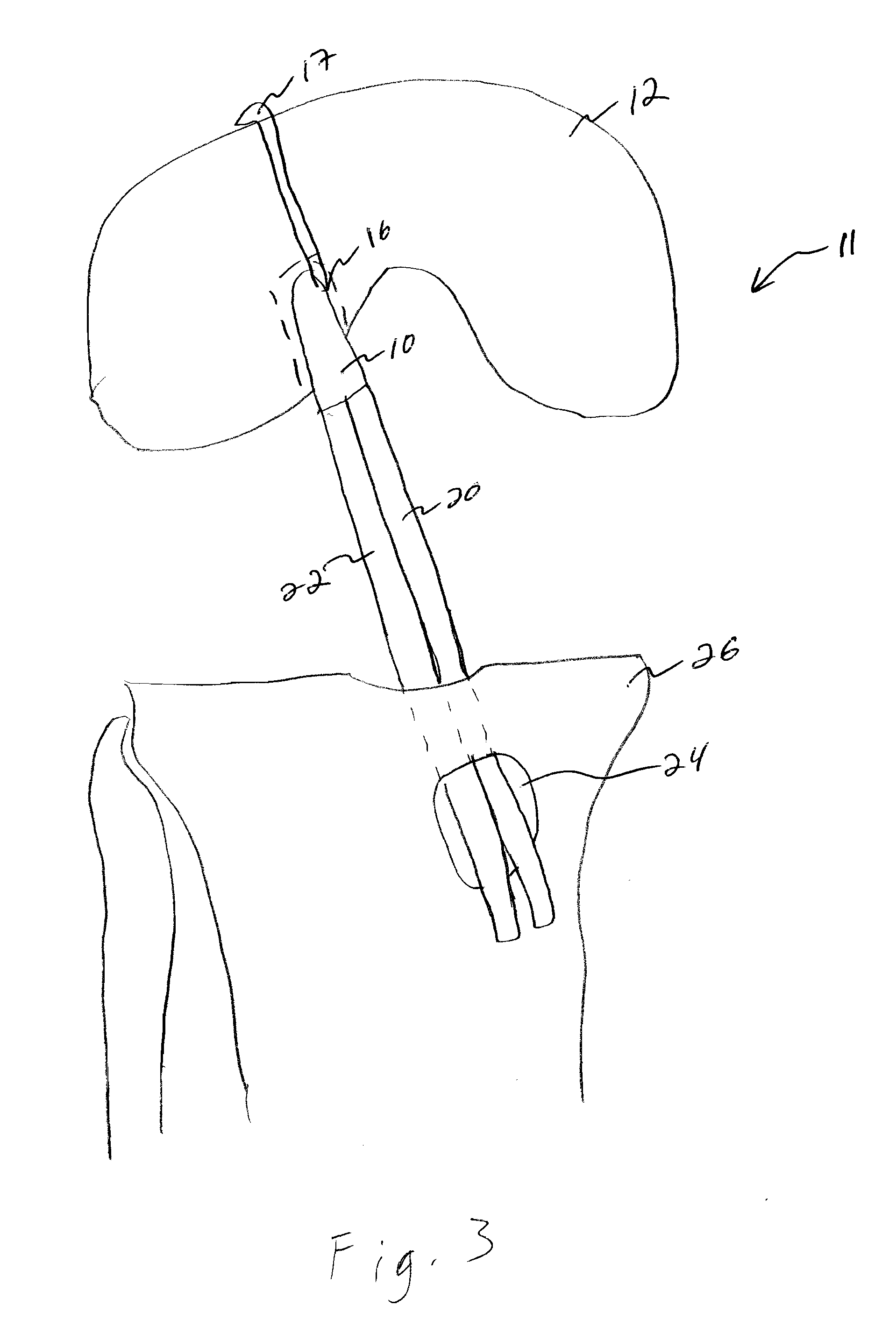Single tunnel double bundle posterior cruciate ligament reconstruction
a single-tunnel, posterior cruciate ligament technology, applied in the field of single-tunnel double-bundle posterior cruciate ligament reconstruction, can solve the problems of extremely high surgeon skill level of dbdtpclr, and achieve the effect of improving surgeon skill and patient comfor
- Summary
- Abstract
- Description
- Claims
- Application Information
AI Technical Summary
Benefits of technology
Problems solved by technology
Method used
Image
Examples
Embodiment Construction
[0019]The following description of the preferred embodiment(s) is merely exemplary in nature and is in no way intended to limit the invention, its application, or uses.
[0020]FIGS. 1-7 illustrate a method of reconstructing the posterior cruciate ligament (PCL) of the knee 11 using a single tunnel double bundle technique. Prior to the reconstruction a standard graft harvest is performed using either allograft or autograft tissues such as bone patellar tendon bone or semitendinosus gracilis (hamstring) tendons. Standard tibial and femoral tunnels then are prepared using either a trans-tibial or a trans-portal technique.
[0021]As shown in FIG. 1, the graft 10 is fixed in the femur 12 using standard fixation techniques. For example, in the exemplary embodiment, when using hamstring grafts, the graft 10 is positioned on the femoral side 14 to provide for a posterior cruciate bundle that can be independently tensioned after femoral tunnel fixation. Alternatively, when using bone patellar te...
PUM
 Login to View More
Login to View More Abstract
Description
Claims
Application Information
 Login to View More
Login to View More - R&D
- Intellectual Property
- Life Sciences
- Materials
- Tech Scout
- Unparalleled Data Quality
- Higher Quality Content
- 60% Fewer Hallucinations
Browse by: Latest US Patents, China's latest patents, Technical Efficacy Thesaurus, Application Domain, Technology Topic, Popular Technical Reports.
© 2025 PatSnap. All rights reserved.Legal|Privacy policy|Modern Slavery Act Transparency Statement|Sitemap|About US| Contact US: help@patsnap.com



